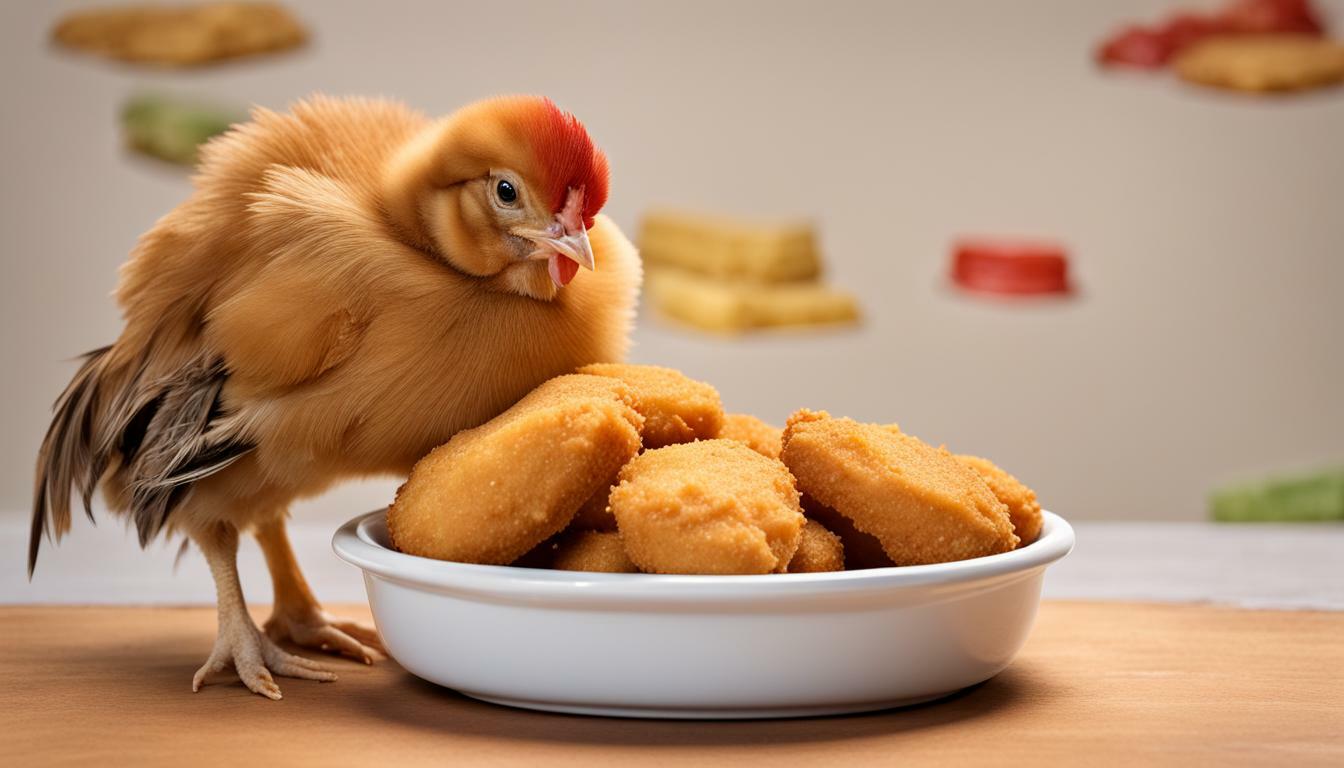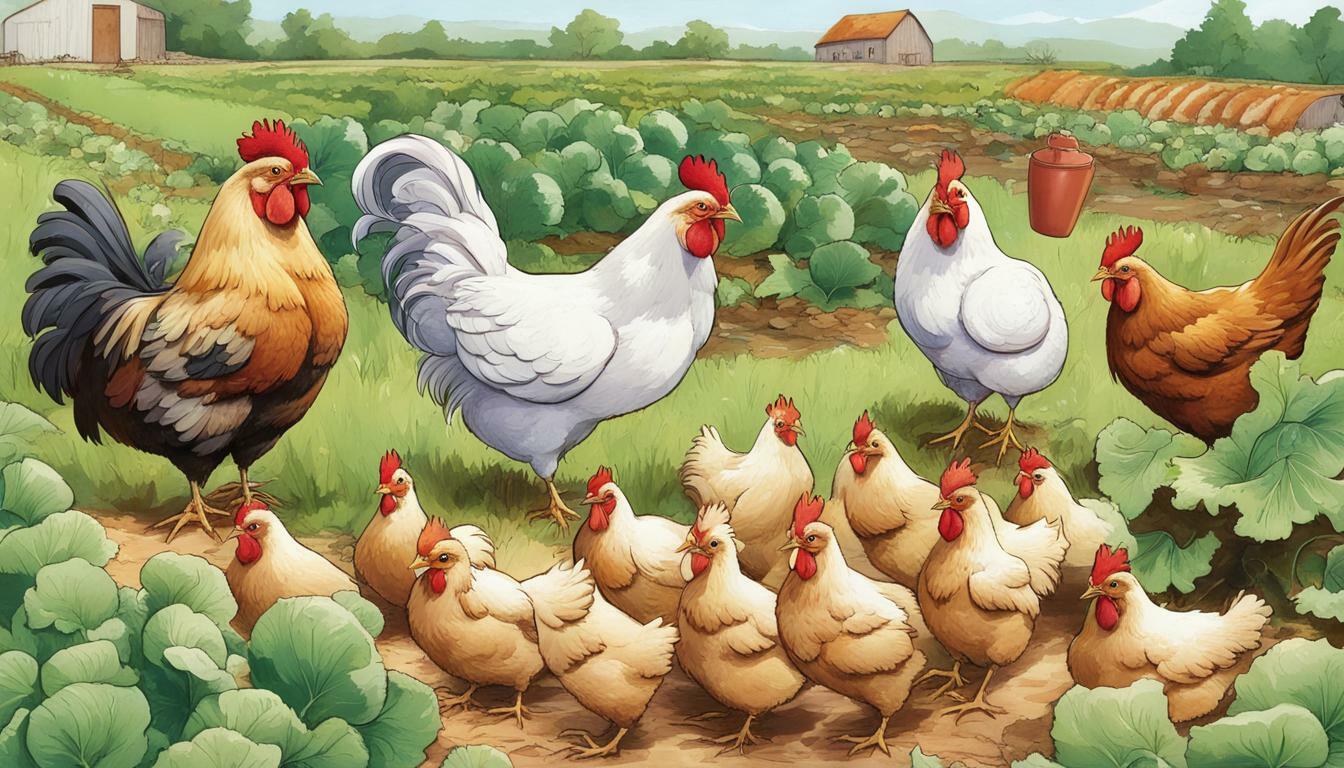Can Chickens Eat Pasta? Benefits and Potential Risks
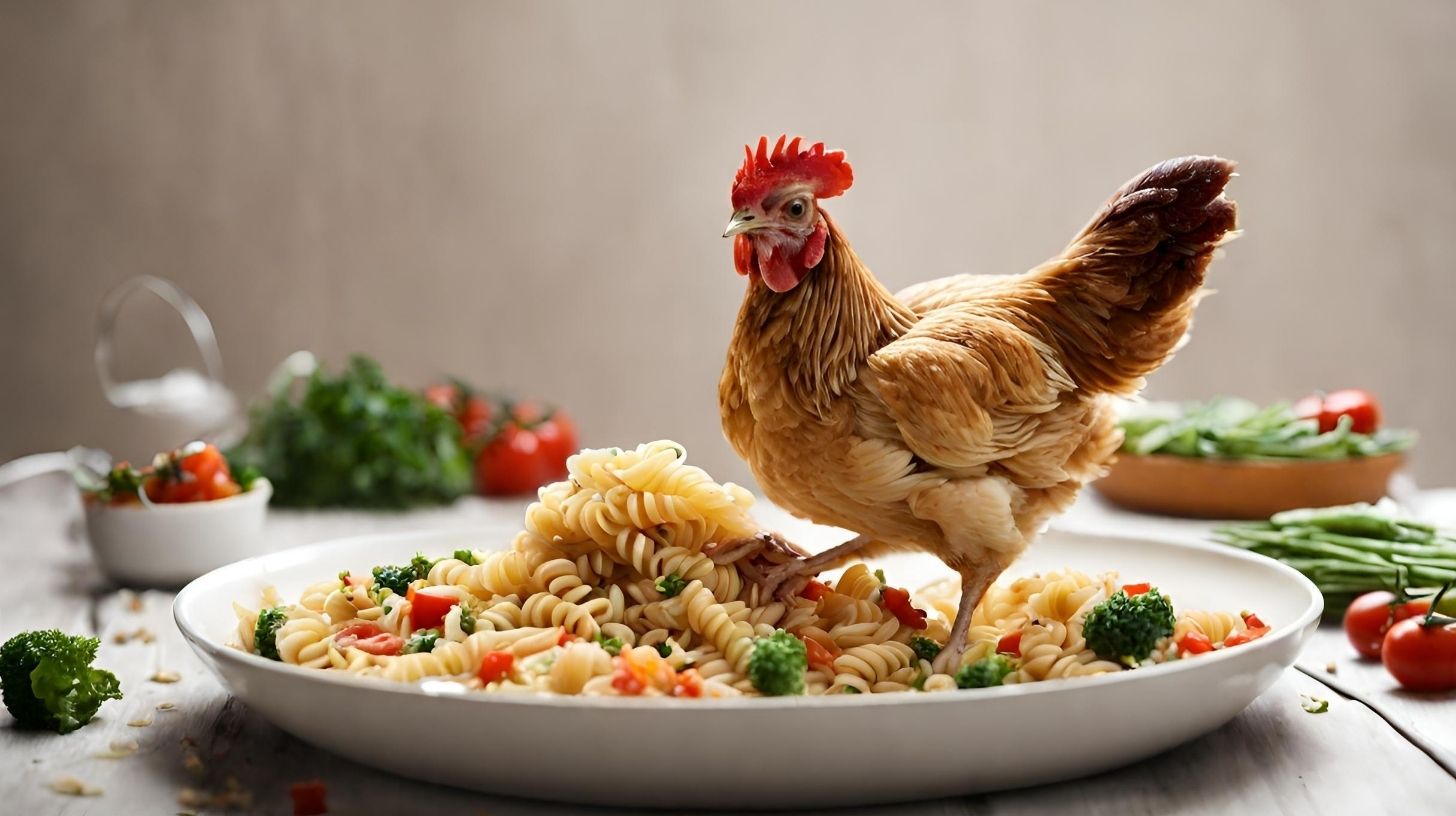
Table of content:
Pasta makes a fun and nutritious supplemental treat for backyard chickens, but is it truly can chickens eat pasta? The short answer is yes, in moderation pasta can be part of a balanced diet for chickens. However, there are some important factors to consider when feeding pasta to ensure chickens gain the nutritional benefits without any potential downsides.
Key takeaways:
- Pasta can be a healthy treat for chickens in moderation. Look for whole grain pasta without added salt or seasonings.
- Cooked pasta is better than raw to help chickens digest it. Make sure it’s cooled before feeding.
- Avoid overfeeding pasta, as too many carbs and not enough protein can be unhealthy. No more than 10% of their diet.
- Opt for pasta shapes like macaroni or small pasta. Avoid long noodles that could cause choking.
- Mix pasta with veggies, rice, oats or chicken feed to balance nutrition.
This complete guide to chickens and pasta will cover whether pasta is healthy for chickens, the best types of pasta to feed chickens, portion sizes and frequency, potential risks, and tips to integrate pasta into a chicken-friendly diet.
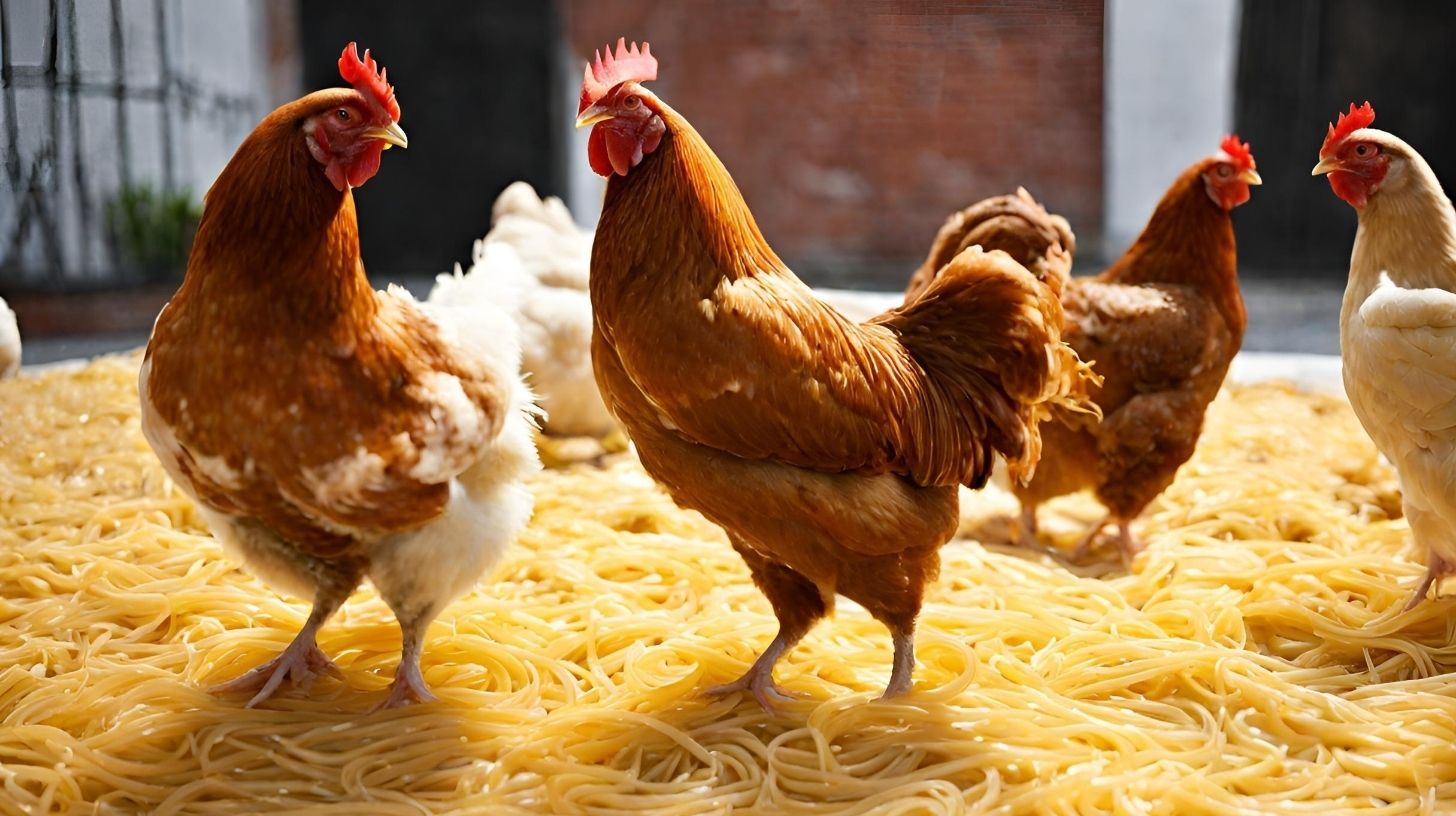 Is Pasta Healthy for Chickens?
Is Pasta Healthy for Chickens?
Pasta is primarily made from semolina or durum wheat and water that is formed into various shapes and then cooked. Pasta provides carbohydrates from wheat as well as some protein, though whole grain pasta tends to be lower in protein. Here is the general nutritional breakdown for cooked pasta (values can vary slightly depending on the brand):
| Nutrient | Amount | % Daily Value |
|---|---|---|
| Calories | 158 | 8% |
| Protein | 5.8 g | 12% |
| Carbohydrates | 31.9 g | 11% |
| Fiber | 1.4 g | 6% |
| Fat | 0.5 g | 1% |
| Calcium | 15.9 mg | 2% |
| Iron | 1.1 mg | 6% |
Pasta can be a source of energy and nutrition for chickens in moderation, though it does not provide complete nutrition on its own. The main considerations when feeding pasta to chickens include:
- Carbohydrates: Pasta is high in carbohydrates relative to its protein content. Chicken’s diets should consist of 16-18% protein at a minimum. Too many carbohydrates from pasta without adequate protein can lead to weight gain or malnutrition.
- Whole grains: Whole grain pasta provides more nutrition, including protein, iron, and fiber than traditional white pasta. Look for whole wheat pasta or pasta made from other whole grains.
- Added ingredients: Many pre-made pasta dishes contain lots of sodium, fats, and seasonings. Opt for plain pasta or check labels carefully.
As an occasional treat, most pastas are fine for chickens if paired with protein sources. But for optimal nutrition, pasta should constitute no more than 10% of a chicken’s total diet.
What Types of Pasta Can Chickens Eat?
Chickens can eat most types of pasta as long as they are plain and not loaded with sodium or spices. Here are some of the best pastas for chickens:
- Macaroni: Small tubular pastas like macaroni are a great choice. Easy for chickens to eat and digest.
- Small pastas: Pastas like ditalini, orzo, pastina, and other small shapes are ideal for chickens.
- Whole grain: Choose whole grain and wheat versions of pasta. Provide more protein and nutrients.
- Plain: Avoid seasoned pasta with added salt, butter, oils, or flavorings. Stick to plain pasta.
Some pasta varieties present choking risks or are lower in nutrients. Avoid these pasta types for chickens:
- Long thin noodles: Spaghetti, linguine, fettucine can wrap around a chicken’s tongue or throat. Stick to cut pasta.
- Large chunks: Oversized pasta shells, lasagna noodles, and pasta bakes can be difficult for chickens to swallow.
- White flour pasta: Made from refined grains, white pasta is lower in nutrients than whole grain.
Follow these pasta guidelines and chickens can enjoy the carbohydrates and energy from pasta safely. Monitor portion sizes and pair with protein sources.
Can Chickens Eat Pasta Raw or Cooked?
Pasta becomes much softer and easier to digest after cooking, so cooked pasta is the best way to feed it to chickens. Avoid offering raw, dried pasta to chickens. Dry pasta is also lower in nutrients until it has absorbed moisture from cooking.
Here are some tips for preparing cooked pasta for chickens:
- Cook thoroughly: Follow package instructions so pasta is fully cooked through. Undercooked pasta can be tough on chickens’ digestive systems.
- Drain well: Ensure pasta is drained after cooking so there is no excess water content. Chickens have sensitive respiratory systems.
- Cool before serving: Allow cooked pasta to come to room temperature before feeding to chickens to prevent crop burns.
- Mash for chicks: For baby chicks transitioning to solid food, mash pasta into crumbles so it is easy for them to eat and digest.
With properly cooked and cooled pasta, chickens can get the full nutritional benefits. Their digestive systems are adapted for eating whole grains so pasta makes a tasty treat.
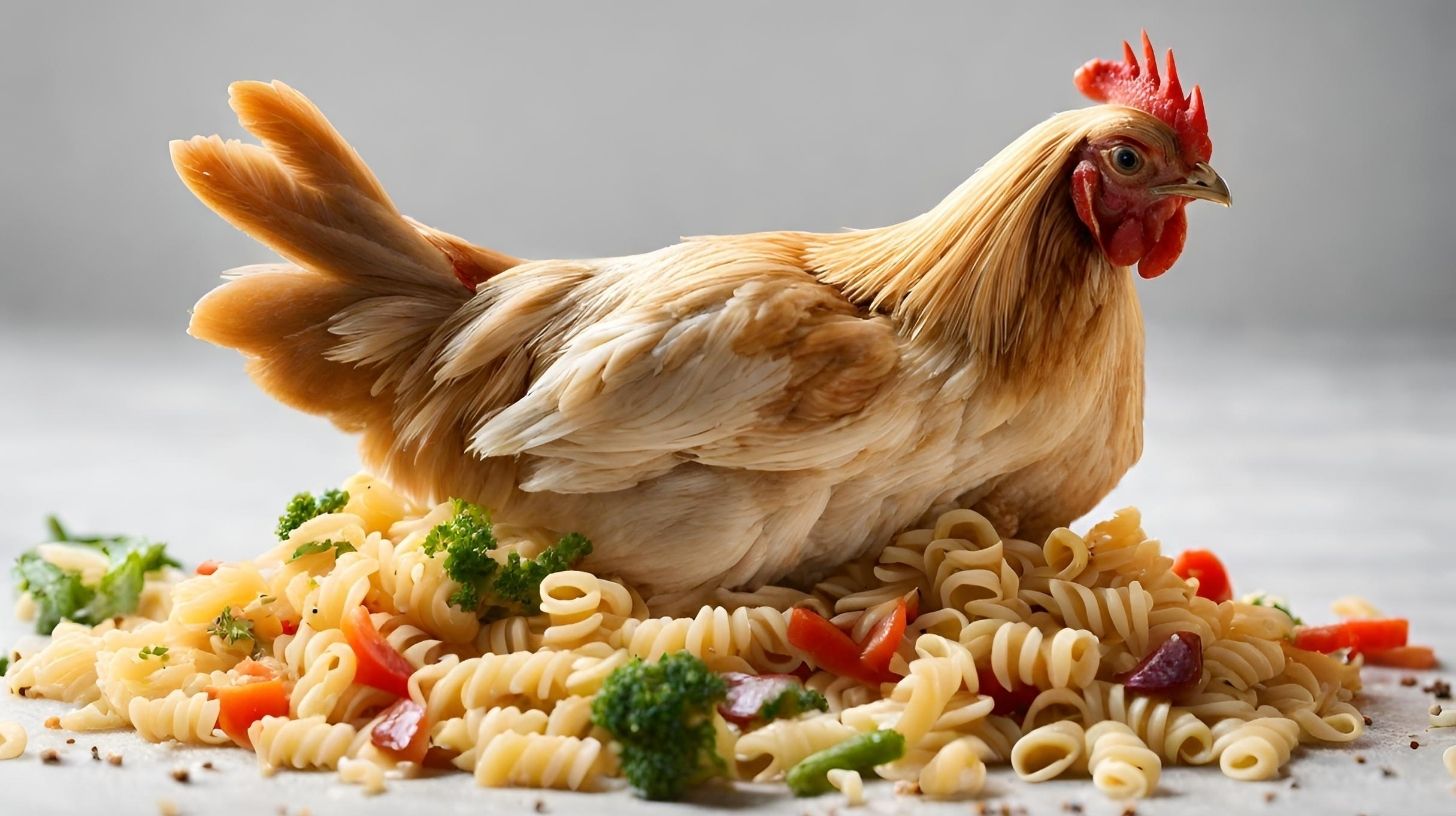 How Much Pasta Should Chickens Eat?
How Much Pasta Should Chickens Eat?
While pasta is not toxic to chickens, it should be limited to no more than 10% of their total diet as too much can lead to nutritional imbalances. Follow these portion guidelines:
- Adult chickens: 1-2 tablespoons of cooked, drained pasta 2-3 times per week. Adjust based on their overall diet.
- Chicks: Around 1 teaspoon of well-mashed pasta once or twice a week.
- Treat level: Use pasta more as a treat or supplement to their main feed. Not as a daily staple.
- Free-ranging: Allow less pasta for chickens that get significant natural forage.
Monitor your chickens’ weight and droppings to ensure the amount of pasta you’re feeding promotes good health without digestive upset. Adjust portions as needed.
What are the Risks of Feeding Pasta to Chickens?
While pasta is not inherently dangerous, improperly prepared or overfed pasta can cause some issues for chickens:
- Malnutrition: Too much pasta and inadequate protein can lead to nutrient deficiencies, low egg production, and lethargy.
- Respiratory issues: Consuming excess water on underdrained pasta can cause fluid in chickens’ respiratory systems.
- Choking hazards: Pasta that is too hard, undercooked, or in long noodle form risks choking chickens or impacting their crops.
- Crop impaction: Overeating dry, raw pasta can lead to a backed up crop.
With a balanced diet and proper portion sizes, these risks are easily avoided. Moderation is key when feeding pasta to chickens.
Tips for Feeding Pasta to Chickens
Here are some top tips to integrate pasta safely into your chickens’ diets:
- Choose whole grain pasta for added protein and nutrients. Macaroni or small pastas are ideal shapes.
- Always cook pasta thoroughly until soft, drain, cool, and mash or cut into pieces before feeding to chickens.
- Limit pasta to no more than 10% of their diet. Offer 1-2 times per week as a treat in small portions.
- Mix pasta with veggies, rice, cooked oats, or scrambled eggs to create a balanced meal.
- Scatter pasta throughout their coop and run area to encourage natural foraging behaviors.
- Cut back on pasta for obese or sedentary chickens prone to weight gain.
Following these tips, pasta can provide carbohydrate energy, minerals, and added excitement at mealtime without the risks of overfeeding. Observe how your flock tolerates pasta and adjust their portions accordingly. In moderation, pasta can be a safe, nutritious, and fun supplemental food for backyard chickens.
Frequently Asked Questions
Can chickens eat spaghetti?
Yes, chickens can safely eat spaghetti in moderation. Break cooked spaghetti into small pieces first to reduce choking risk and make it easier to digest. Mix with vegetables or protein sources to balance the nutritional value.
Can chickens eat macaroni and cheese?
Plain macaroni is healthy for chickens but avoid cheese and especially mac and cheese with added milk and salt. The dairy and sodium is unhealthy for chickens. Stick to plain whole grain pasta.
Can chickens eat lasagna?
Cooked lasagna noodles, crumbled into small pieces, are okay for chickens occasionally. Avoid feeding large pieces of lasagna loaded with cheese, sauce, spices and salt which can upset their digestive systems.
Can I feed chickens pasta everyday?
It’s best not to feed pasta every day. Used too frequently, pasta can throw off the ideal nutritional balance with too many carbohydrates. Treat pasta as a supplemental feed a couple times a week rather than a daily staple.
Is pasta better than bread for chickens?
Pasta and bread both provide carbohydrates, but pasta tends to be lower in sugar and made from nutritionally superior whole grains. In moderation, pasta is a healthier choice with more protein, minerals, and fiber.
Conclusion
In conclusion, pasta can be a safe, healthy addition to a chicken’s diet when fed properly and in moderation. Focus on whole grain, plain pasta in bite-sized pieces. Pair pasta with protein sources and limit to occasional treats 2-3 times per week.
Following these best practices allows chickens to gain nutritional benefits from pasta without adverse effects like malnutrition, choking, or impaction.
Observe your flock as you introduce pasta and adjust their portions based on their tolerance. Used as an occasional supplement and not a staple, pasta can provide energy, excitement, and variety at mealtimes for backyard chickens.
Welcome. I’m Adreena Shanum, the proud owner of this website, and I am incredibly passionate about animals, especially poultry. I founded adreenapets.com as a labor of love, stemming from my desire to share my knowledge and experiences with poultry enthusiasts worldwide.


